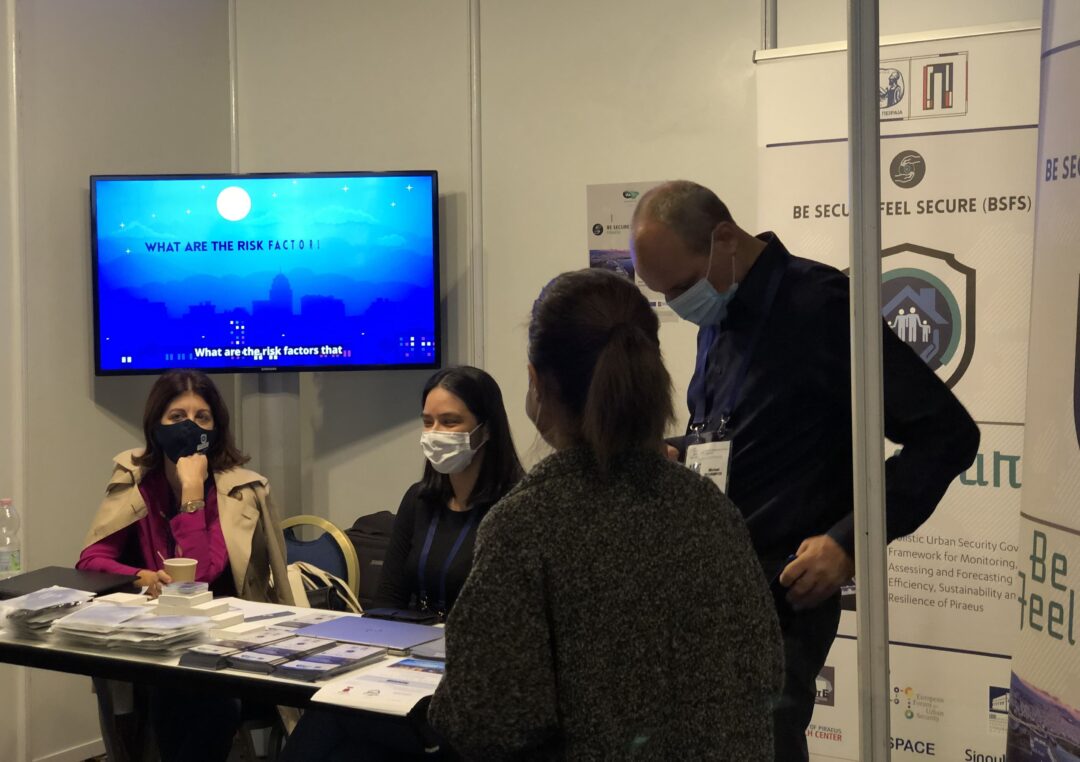March 2022 – As part of a series of web conference it organises to share its innovative practices with other local authorities, the BeSecure-FeelSecure (BSFS) project, led by the City of Piraeus (GR) and in which Efus is a partner, held a session titled From Neighbourhoods to Policymakers: How Do Audits Contribute to Evidence-Based Security Policy?, on 10 March.
Co-funded by the EU Urban Innovative Actions, the BSFS project (2019-2023) seeks to reinforce security in the City of Piraeus. It will develop a governance structure, innovative ICT tools, social and spatial interventions such as awareness raising actions addressed to youth about bullying and cyber threats, training sessions for civil servants, shop owners and other stakeholders, as well as image management and target hardening based on the Crime Prevention Through Environmental Design (CPTED) model.
Three main takeaways
> Factors to take into account in a local audit
When conducting local audits, Eleni Kontopoulou & Angelos Mimis from Panteion University suggested taking into account factors like trust in authorities, subjective perceptions of security, and the willingness to participate in community-based crime prevention measures. They focused on the example of Piraeus, where a local safety audit was conducted within the framework of the BSFS project.
> The importance of partnerships
Mateja Mihinjac, Executive Director at the International CPTED (Crime Prevention Through Environmental Design) Association, argued that the premise for efficient safety audits is partnerships (with communities and local organisations) and a focus on a smaller geographic level (neighbourhoods, city centres, etc.). She presented the examples of Canada and the US.
> The perspective of women
Barbara Holtmann, Director at Fixed Africa, presented Safetipin, a platform that collects safety-related information specifically geared towards women through map-based applications. She argued that it is valuable to take women’s perspective into account in local security audits, because cities that are safe for women are safe for everyone. She focused on the example of Durban in South Africa.
The BSFS project will hold three other web conferences in the coming months. The next one, Local Crime Prevention Councils: A Pillar of Urban Security Governance, will take place on 5 May.





